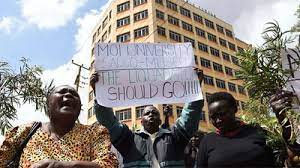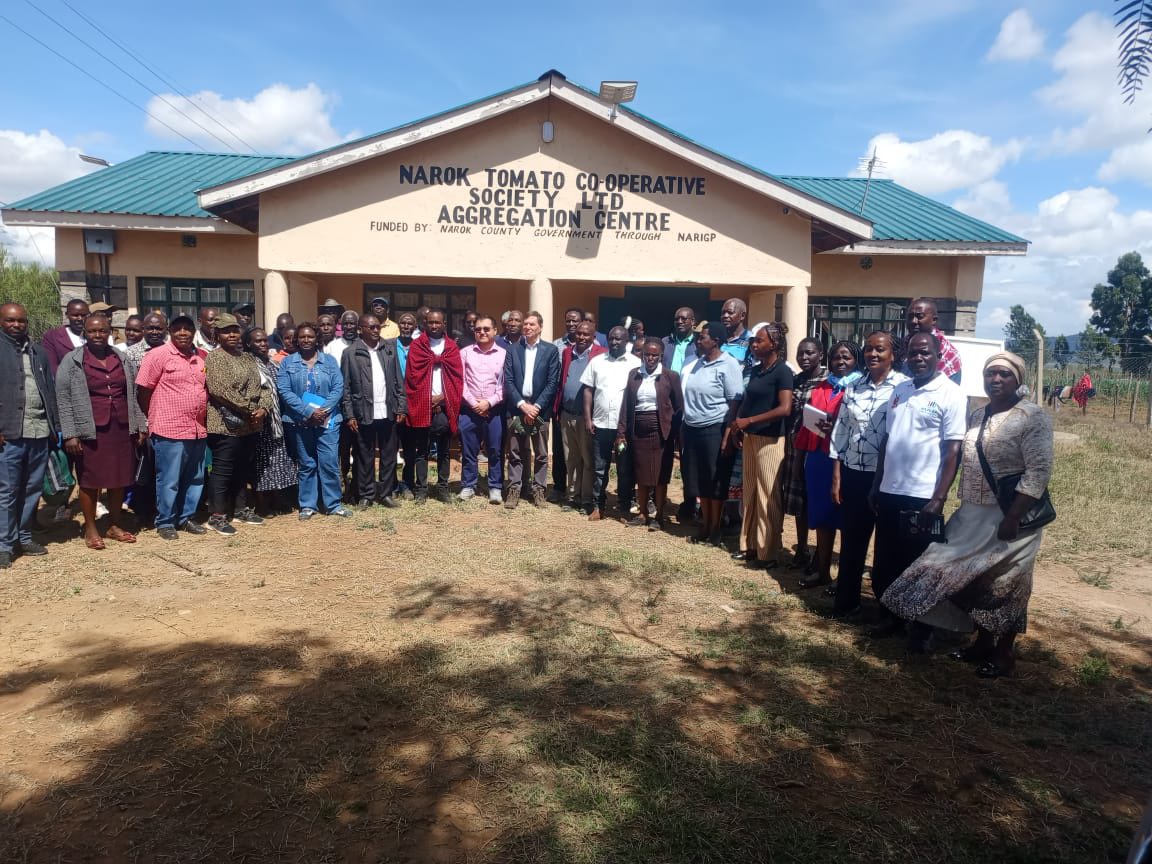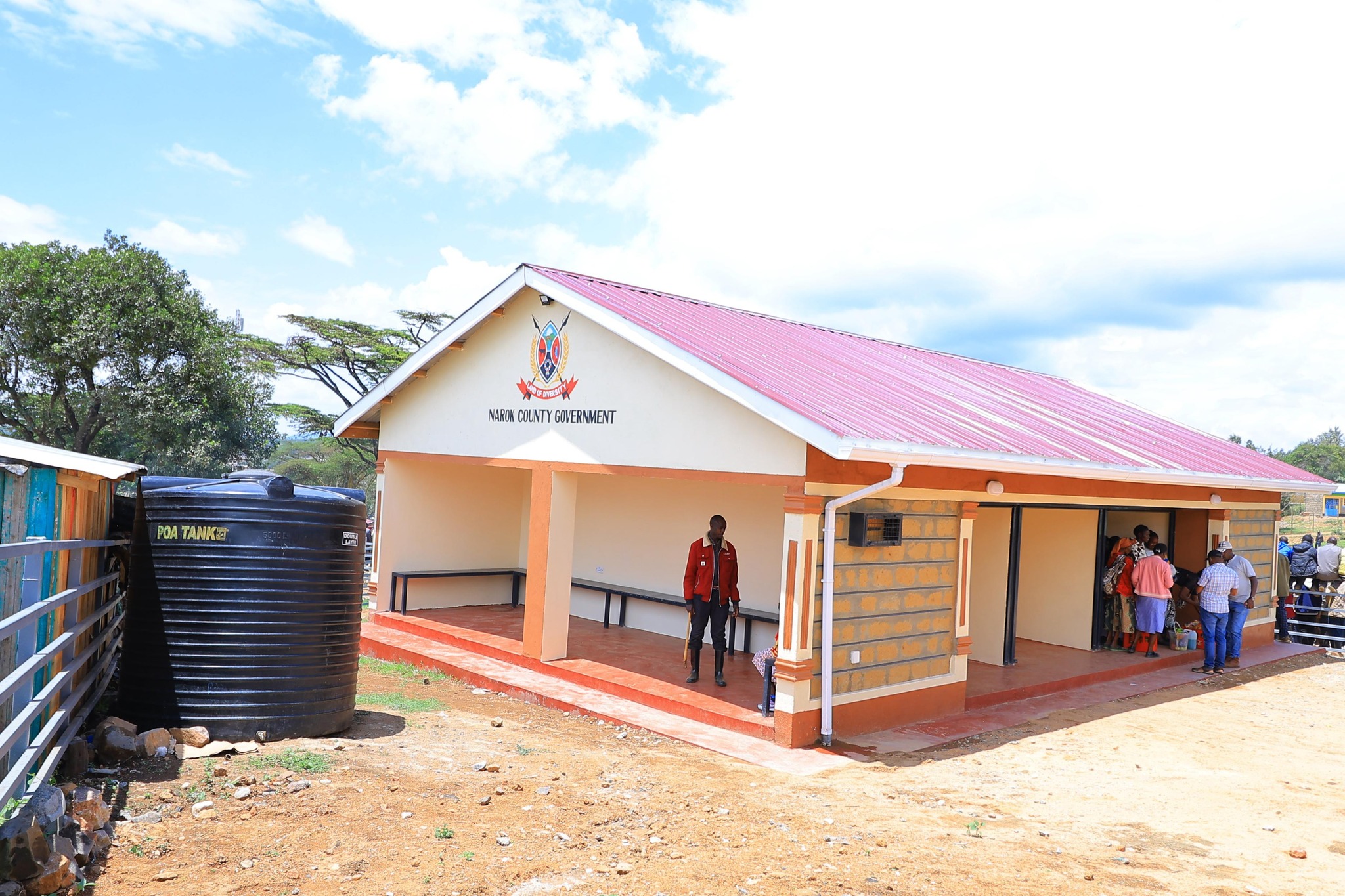By Roy Hezron
The one time vibrant Moi University Savings and Credit Cooperative Society (MUSCO) is now on its deathbed.
The Sacco’s MUSCO Towers, a commercial building in Eldoret town, will forever bring back painful memories to the thousands of Sacco members who are not sure whether they will ever recover their hard earned cash they pumped into the once vibrant and most envied Sacco in the country.
Where the rain started beating MUSCO
A report by the then Senate Standing Committee on Tourism, Trade and Industrialization on the liquidation of MUSCO dated July 2021 and tabled in the senate on August 4, 2022 revealed that the liquidity challenges of MUSCO dated back to 2009 following its initial credit facility from Co-operative Bank of Ksh200 million.
The report shows that the Sacco acquired an Eldoret municipality block at a cost of Ksh12 million where they constructed MUSCO Towers.
During the Sacco’s Annual General Meeting in 2018, it was agreed that members’ funds would be used to finance the construction of MUSCO Towers and the Senate’s report revealed that already Ksh132,813,063 had been raised by 3,020 members by December 2014.
MUSCO Towers was used as security for the Ksh200 million loan from Co-operative Bank.
From the amount, the Sacco used Ksh27.3 million to subsequently repay Kenya Union of Savings and Credit Co-operatives (KUSCCO) loan, leaving a balance of Ksh 157.7 million for the project.
The agreed contract price for construction of the towers was Ksh464 million. The Sacco paid Ksh368, 135, 131 and the balance of Ksh100, 992, 235 hasn’t been cleared to date.
The contractor sued the Society and a decree of Ksh141 million was granted, an amount that has continued to attract an interest rate of 14 per cent per annum.
The Senate report revealed that there were several variations on the initial cost of the building, which was reflected as Ksh764, 442, 904 as at December 2015 as per audited accounts.
At the point of licensing by SASRA in 2014, the unresolved issue was that MUSCO had prior to 2014 borrowed extensively and invested in the construction of the MUSCO Towers. Unfortunately, owing to insufficient returns from the building, the Sacco started struggling to repay its loan facility, resulting in the use of members’ funds to undertake its obligation.
Misappropriation thrived
The Senate report reveals that there was some degree of financial impropriety and abuse of office on the part of the MUSCO officials dating back to 2008.
For instance, the committee raised concerns regarding management decisions following an annual general meeting in 2008 to finance the construction of MUSCO Towers with members’ deposits.
The Senate’s greatest concern was that the initial cost of the building was Ksh230 million but it escalated to over Ksh800 million due to increased interest rates compared to the real value as per valuation report of Ksh764 million.
The committee further noted that the valuation of the tower as at 2021 was Ksh450 million.
The report further reveals that there was a possible lapse, either intentionally or otherwise, by the officials of the Sacco on payments for work not done.
For instance, evidence presented before the committee indicated that in 2012, construction of the MUSCO Towers was suspended for 18 months, yet the contractor continued to be paid Ksh20 million monthly for the said period.
“The committee also noted that there was a haphazard change of plan in the construction of the building from the initial 8 floors to 12 floors, a scenario that might have contributed to the financial strain the Sacco experienced in the subsequent years,” read the report in part.
MUSCO’s sinking boat
With huge credit facilities from Cooperative Bank, unpaid contractor balance which continued to incur interest, insufficient income from the constructed tower, and reverting to use of members’ funds to pay its loans, the Sacco’s troubles continued to pile and its boat began to sink.
The Sacco’s decision to use members’ savings resulted in apathy which led to mass withdrawals as the Sacco could no longer provide the requisite services to members.
The Senators’ observations and findings in the report revealed that prior to the Sacco’s conditional licensing in June 2014, it had a credit facility worth Ksh310 million acquired between December 2009 and March 2012.
The committee further noted that as at August 6, 2020, MUSCO’s liability with Cooperative Bank stood at Ksh590, 955, 427, which will continue to accrue interest until paid in full.
“Inspection report from SASRA and external auditors’ opinion on the MUSCO’s financial statements for the period ended December 2017 revealed that 87 per cent of the Sacco’s loans were non performing, meaning that only 13 percent were collectable. Thus, the Society was technically insolvent because its deposit liabilities exceeded Ksh800 million,” the State Department for Cooperatives stated in its submission to Senate.
On June 28, 2018, SASRA revoked MUSCO’s license, arguing that the Sacco had failed to comply with the provisions governing Saccos in the country; in particular, failing to maintain at least 50 per cent of the prescribed minimum capital requirements and liquidity ratio and failing to refund members’ savings and deposits amounting to Ksh345 million.
The Society was also found to have engaged in unsafe and unsound business practices by overstating its loans as key assets and providing the loan loss allowance at Ksh14.2 million instead of Ksh275.2 million.
The Sacco was also found incapable of meeting the immediate financial obligations of: members who were owed more than Ksh345 million, tax obligations in excess of Ksh13 million, money owed to financial lending institutions in excess of Ksh422 million, and other party creditors (contractor) in excess of Ksh141 million, among others as at December 2017.
Other reasons for the revocation of the license include continued deposit-taking in the absence of a functional and compliant Management Information System, hence breaching and violating the law and further enhancing the risk of loss and non-accountability of financial transactions.
The license was also revoked since the Sacco had deviated from the core business of saving and offering credit to members, to investing in buildings and purchasing plots that were granted to members as loans thereby increasing the loan default rate that stood at Ksh275.2 million.
Despite the Sacco’s asset portfolio amounting to Ksh566 million as confirmed by the Senate committee with property contributing the largest amount of Ksh486 million, some of its properties have questionable outcomes.
The Sacco’s investments include MUSCO Towers in Eldoret CBD worth Ksh1.2 billion, MUSCO Plaza in Moi University Main Campus worth Ksh50 million, 21 parcels of land located at Sambu Kaplimo valued at Ksh6 million all with title deeds, and two (2) blocks of plots in EATEC at Ngeria Zone, among others.
The Senate committee observed that two parcels of land at Sambu area and the land MUSCO Plaza is built on lack title deeds and the plaza is considered a public utility.
MUSCO Towers on the other hand has a charge by Co-operative Bank.
At some point, the High Court in Eldoret issued orders for MUSCO Towers to be auctioned and the money used to recover the Co-operative Bank loan and pay the contractor who put up the building.
The situation forced five petitioners: Prof Jack Willis Okumu, David Thuo Kamau, Rose Koima, Michael Kangogo and Pamella Mora, through the then Uasin Gishu Senator Prof Margaret Kamar, to petition Senate to stop the auction of the tower.
They argued that the tower was hurriedly being sold at Ksh250 million yet it was worth more than Ksh650 million and that the difference in price could cost irrecoverable loss to the tower’s shareholders.
If the building is auctioned, more than 3,600 desperate members of the Sacco, including employees of Moi University, University of Eldoret, Moi Teaching and Referral Hospital and constituent colleges of Moi University, among others, risk losing their investment.
The Senate report further revealed that deceased members had not been paid Ksh20 million compensation received from CIC and that retirees were demanding Ksh35 million from the Sacco.
Senate recommendations
The Senate in its report recommended that the Commissioner of Cooperatives, in consultation with SASRA, Uasin Gishu County Government, Co-operative Bank and the Intergovernmental Relations Technical Committee, reinstate MUSCO’s certification of operations (back office) and that the Cooperative Bank of Kenya should present a comprehensive report on the way forward as regards the credit facility owed by MUSCO.
The committee also recommended that the Directorate of Criminal Investigation (DCI) should institute investigations on malpractices and abuse of office by former MUSCO officials dating back to 2009 and prosecute those found culpable of financial impropriety and that the office of the Auditor General undertake audit on the liquidation process by MUSCO liquidators to determine any impropriety.
Can MUSCO be brought back to life?
Despite the Senate in August 2021 recommending the reinstatement of the Sacco’s certificate within three months, chances of the Sacco being revived are very minimal since members savings are booked as liabilities and can only be recovered after the other creditors, Cooperative Bank and the contractor, have been paid.
The ministry through the State Department of Cooperatives insists that the challenges facing MUSCO are entirely financial, hence an attempt to revive the Sacco must include injection of sufficient funds to cover existing liabilities and subsequently provide fresh capital.
However, such actions can be hindered by several factors like low membership following mass withdrawals and outstanding claims of refund from members totaling Ksh345 million as at December 2017, which have to be refunded from the onset.
Loan recovery remains a key asset of any Sacco and since only 13 per cent of the Sacco’s loan portfolio of Ksh359 million was performing as at December 2017, the implication is that MUSCO is technically without assets to guarantee sustainable operations.
Since deposit-taking financial institutions like MUSCO thrive on trust and confidence of depositors, the mistrust by members will make it difficult for them to return to the Sacco.



